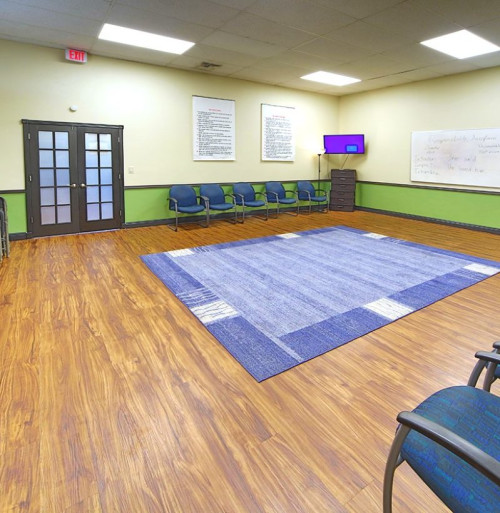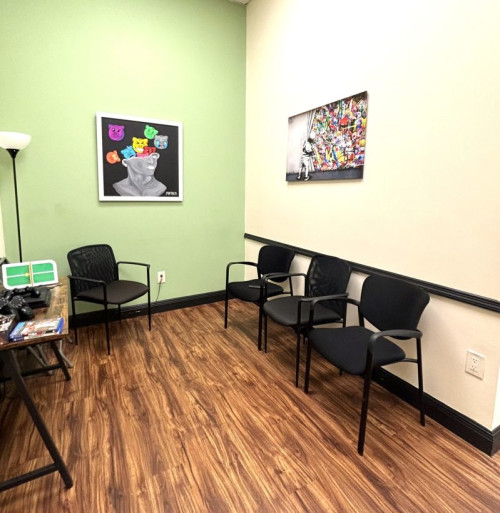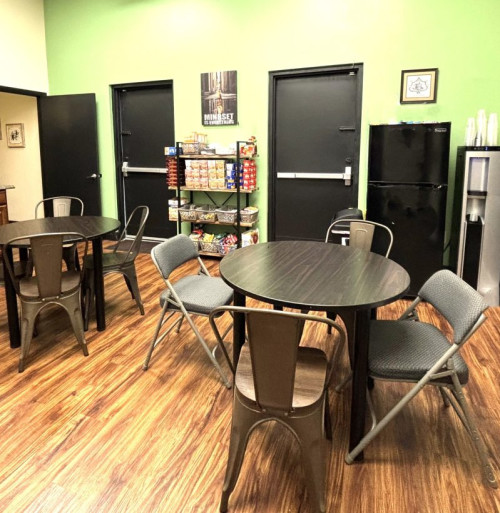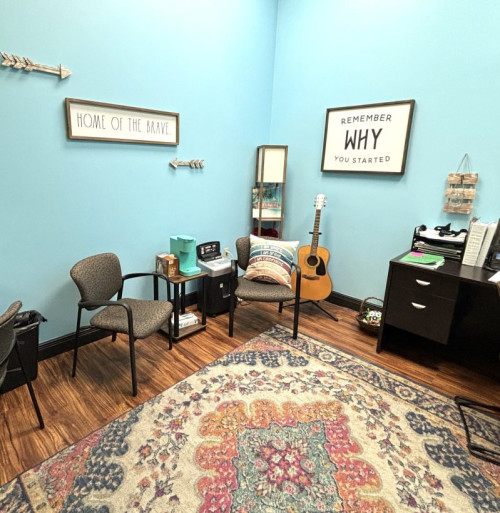






AWA Broward
Treatment Focus
This center treats mental health conditions and co-occurring substance use. You receive collaborative, individualized treatment that addresses both issues for whole-person healing.
Primary Level of Care
Outpatient treatment offers flexible therapeutic and medical care without the need to stay overnight in a hospital or inpatient facility. Some centers offer intensive outpatient program (IOP), which falls between inpatient care and traditional outpatient service.
This provider hasn't verified their profile's information. Are you the owner of this center? Claim your listing to better manage your presence on Recovery.com.
Treatment Focus
This center treats mental health conditions and co-occurring substance use. You receive collaborative, individualized treatment that addresses both issues for whole-person healing.
Primary Level of Care
Outpatient treatment offers flexible therapeutic and medical care without the need to stay overnight in a hospital or inpatient facility. Some centers offer intensive outpatient program (IOP), which falls between inpatient care and traditional outpatient service.
Provider's Policy
We take pride in being in-network with all major commercial insurances in Florida, ensuring that most of our clients have little to no cost with their teen’s mental health care.
AWA Broward
AWA Broward
About AWA Broward
Adolescent Wellness Academy (AWA) offers comprehensive outpatient programs ideal for adolescents and teens ages 13-17, specializing in mental healthcare and co-occurring disorders such as substance use disorder (SUD). Their holistic programs offer an individualized blend of evidence-based 1:1 and group therapy, creative experiential activities and academic support with a family-centered approach. Their multidisciplinary team works closely with clients and their loved ones, helping teens build resilience, foster self-disovery and awareness and strengthen peer and family relationships in an environment promoting connection and healing.
Demystifying Mental Health
The therapeutic day program at AWA is their highest level of care, also known as a partial hospitalization program (PHP). Their day program offers a residential-like structure while allowing clients to remain living at home, with 8 hours of treatment per day, 5 days per week. The therapeutic day program consists of 1 hour of 1-on-1 therapy and 4 hours of evidence-based group sessions per week, integrating 2-3 hours of on-site academic support with an education coordinator to ensure teens keep up with their schooling. Additionally, clients have a weekly psychiatric assessment to check on progress and adjust treatment plans accordingly. Nutritional counseling and support is available as required, along with lunch, snacks and drinks provided daily.
Teens are typically in PHP for 4-12 weeks, and then transition to an intensive outpatient program (IOP). IOP is an afternoon program, treating teens experiencing mild symptoms of depression, anxiety, trauma, behavioral issues or SUD. The afterschool program meets for 3 hours per day, 3-5 days per week, consisting of 2 daily group sessions. Experiential and creative activities such as music, yoga and mindfulness are offered, with designated study spaces equipped for teens to work on homework assignments. Teens and their families typically spend 10-16 weeks in IOP.
Family-Centered Approach
Treatment at AWA strongly encourages family involvement, emphasizing the importance of parents and loved ones being involved in their teen’s recovery process. AWA offers a weekly parent support group, monthly multi-family group support meetings, and clinical services for crisis management. Additionally, families at AWA may participate in regular family therapy sessions.
Center Overview
Treatment Focus
This center treats mental health conditions and co-occurring substance use. You receive collaborative, individualized treatment that addresses both issues for whole-person healing.
Joint Commission Accredited
The Joint Commission accreditation is a voluntary, objective process that evaluates and accredits healthcare organizations (like treatment centers) based on performance standards designed to improve quality and safety for patients. To be accredited means the treatment center has been found to meet the Commission's standards for quality and safety in patient care.
Insurance Accepted
Cash Pay Rates
Estimated Cash Pay Rate
Center pricing can vary based on program and length of stay. Contact the center for more information. Recovery.com strives for price transparency so you can make an informed decision.
Levels of Care







Your Care Options
Specializations
Anxiety
Anxiety is a common mental health condition that can include excessive worry, panic attacks, physical tension, and increased blood pressure.
Depression
Symptoms of depression may include fatigue, a sense of numbness, and loss of interest in activities. This condition can range from mild to severe.
Adolescents
Teens receive the treatment they need for mental health disorders and addiction, with the added support of educational and vocational services.
Who We Treat
Adolescents
Teens receive the treatment they need for mental health disorders and addiction, with the added support of educational and vocational services.
Approaches
Experiential
Expressive tools and therapies help patients process past situations, learn more about themselves, and find healing through action.
Evidence-Based
A combination of scientifically rooted therapies and treatments make up evidence-based care, defined by their measured and proven results.
Family Involvement
Providers involve family in the treatment of their loved one through family therapy, visits, or both–because addiction is a family disease.
Therapies
1-on-1 Counseling
Patient and therapist meet 1-on-1 to work through difficult emotions and behavioral challenges in a personal, private setting.
Family Therapy
Family therapy addresses group dynamics within a family system, with a focus on improving communication and interrupting unhealthy relationship patterns.
Acceptance and Commitment Therapy (ACT)
This cognitive behavioral therapy teaches patients to accept challenging feelings and make the appropriate changes to reach personal goals.
Nutrition Counseling
Nutritious food helps patients heal from within, setting them up for mental and bodily wellness as they learn about healthy eating.
Mindfulness Therapy
This ancient practice can be mental, emotional, and even spiritual. In meditation, you focus your attention on the present moment without judgement.
Conditions We Treat
Post Traumatic Stress Disorder
PTSD is a long-term mental health issue caused by a disturbing event or events. Symptoms include anxiety, dissociation, flashbacks, and intrusive thoughts.
Anxiety
Anxiety is a common mental health condition that can include excessive worry, panic attacks, physical tension, and increased blood pressure.
Depression
Symptoms of depression may include fatigue, a sense of numbness, and loss of interest in activities. This condition can range from mild to severe.
Obsessive Compulsive Disorder (OCD)
OCD is characterized by intrusive and distressing thoughts that drive repetitive behaviors. This pattern disrupts daily life and relationships.
Bipolar
This mental health condition is characterized by extreme mood swings between depression, mania, and remission.
Trauma
Some traumatic events are so disturbing that they cause long-term mental health problems. Those ongoing issues can also be referred to as "trauma."
Eating Disorders
An eating disorder is a long-term pattern of unhealthy behavior relating to food. Most people with eating disorders have a distorted self-image.
Anger
Although anger itself isn't a disorder, it can get out of hand. If this feeling interferes with your relationships and daily functioning, treatment can help.
Substances We Treat
Co-Occurring Disorders
A person with multiple mental health diagnoses, such as addiction and depression, has co-occurring disorders also called dual diagnosis.
Drug Addiction
Drug addiction is the excessive and repetitive use of substances, despite harmful consequences to a person's life, health, and relationships.
Alcohol
Using alcohol as a coping mechanism, or drinking excessively throughout the week, signals an alcohol use disorder.
Languages
Care Designed for Your Needs
Amenities
Special Considerations
Healthy Meals are provided
Great food meets great treatment, with providers serving healthy meals to restore nutrition, wellbeing, and health.
Activities
Yoga
Yoga is both a physical and spiritual practice. It includes a flow of movement, breathing techniques, and meditation.
Smoking and Vaping Policy
What people are saying
Treatment
5.0
Accommodations
5.0
Food & Nutrition
5.0
Value
5.0
SA
Reviewed 03/02/16
Review from Rehabs.com
FP
Reviewed 03/02/16
Review from Rehabs.com
EM
Reviewed 03/02/16
Review from Rehabs.com
GV
Reviewed 03/02/16
Review from Rehabs.com





